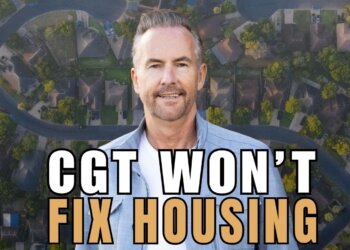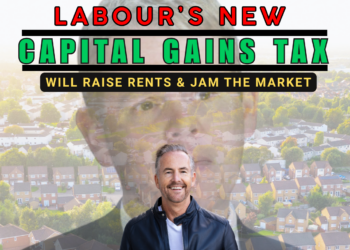Landlord interest payments jump up by thousands due to new tax rules
By Miriam Bell
The only issue that Cam Hadfield has ever contacted his local MP about is the new interest deductibility rules for property investors.
Hadfield, of Palmerston North, described himself as a classic “mum and dad type” landlord, and said the “unfair” policy meant he would have to pay $6000 more in tax this year.
The rules, which removed the ability of investors to offset interest paid on home loans against rental income on existing properties, were introduced in 2021, but were being phased in over several years.
Hadfield and his wife owned two rental properties – their former family home in Wellington, which had been upgraded to be healthy homes standards compliant, and a newly built house in Christchurch.
As a new build the Christchurch property was exempt from the interest deductibility rules, but the Wellington property was not.
There was about $720,000 of debt on it, and with an average interest rate of 5.1%, it amounted to about $36,000 in interest that could not be claimed, he said.
“At a 33% tax rate, it means we will be paying approximately $12,000 more tax annually on that property, once the rules are fully phased in. This year it will be $6000 more.”
He had no idea where the extra money was going to come from, but would do everything possible to hold the property as it was an investment in the family’s future.
“Rising interest rates do make it harder, but interest rates go up and down,” Hadfield said.
“It is just part of the cycle. Anyone who thought they were going to stay around 2% to 3% forever was naive, so I’m not complaining about that.”
But the new interest deductibility rules came out of left field, and were a different matter, he said.
“Describing interest deductibility as a ‘loophole’ is wrong, it is not a ‘loophole’. People say they can’t claim back on their own home, but they are not earning an income on that home. You should be able to claim expenses on income earned.”
If the policy remained in place, it would have a significant impact on many investors, and for no real reason, he said. “It just punishes families for wanting to get ahead in life.”
Before the Labour government introduced the policy change, it was possible to claim back all the interest cost of a home loan against the rent received on a property.
That meant if a landlord earned $20,000 a year in rent from a property but paid $12,000 in interest on the loan, only $8000 of the rental income would be subject to tax.
By March 31, 2025 when the new rules were fully phased in, the whole $20,000 would be subject to tax.
With the start of the new financial year on April 1, the percentage of interest a landlord could deduct from had been reduced to 50%, from 75% last year.
ACT deputy leader Brooke van Velden said she had crunched the numbers around the increased interest deductibility limitation, and they were not good for landlords.
The numbers showed that someone with the average new investor mortgage debt of $492,342 faced $6400 more tax this financial year than they would have three years ago, she said.
“The same landlords are now paying over $17,000 more in net interest than they were three years ago because their ability to deduct interest costs has been taken away.
“Landlords have gradually had to pay a higher percentage of their interest bill at the same time that interest rates have been increasing.”
If a landlord passed that cost on to tenants it equated to another $123 per week in rent, van Velden said.
“It is a policy that increases costs for many New Zealanders during a cost of living crisis, and is one of the reasons there are all-time high rental costs.”
Previous analysis by Deloitte found the interest deductibility changes would result in more rental properties becoming loss-making.
The policy did not make sense as it was a core principle of most tax systems that people were only taxed on their profit, property accountant Anthony Appleton-Tattersall said.
A loan to buy a taxable income stream such as a share portfolio, rental property, or a profitable business, was directly related to the earning of that income, so the interest on the loan should be deductible against the income to determine taxable profit, he said.
“And it is. Unless the income earning activity is residential rental property built before March 2020. It means a group of investors now effectively pays tax on their top line income.”
That was like the local store selling an item for $50, paying tax on that income ($14) even though they paid $40 in purchases and wage costs, so while their genuine profit was $10, they paid $14 in tax, he said.
“Most frustratingly of all, this change affects the tenants who have seen significant rent rises, and the new landlords struggling to get ahead with high levels of debt most of all.
“It barely touches the wealthiest investors who carry little debt, or have easy ability to sell one of many assets to pay down their debt.”
There were some exceptions to the new rules, with new build properties which received their code of compliance certificate after March 27, 2020 able to deduct interest for 20 years from when the certificate was issued.
Build-to-rent developments were also exempt, as were rental properties leased to Kāinga Ora, a registered community housing provider, or specific government departments for social housing.
See below full article in the link to Stuff.co.nz







